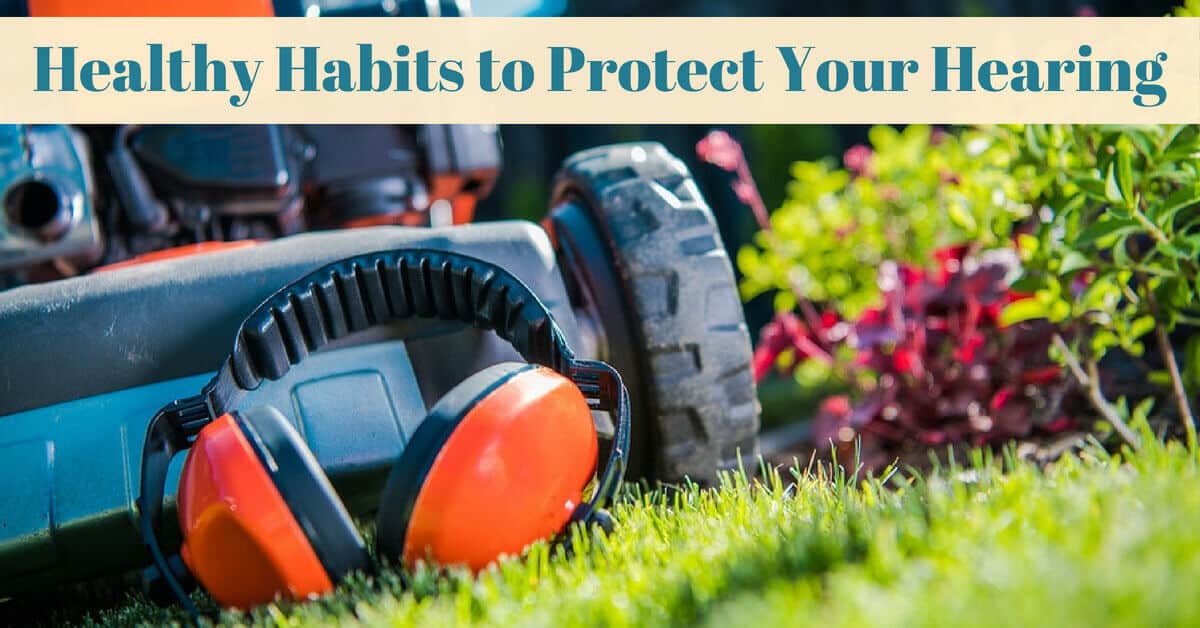
Preventative health is a popular topic today. Some companies, organizations, and even insurance companies offer incentives for developing healthy habits that may profoundly impact your life. Yet, it is not enough to consider habits such as exercise, nutrition, and getting an annual physical. Preventative behaviors apply to your hearing, as well. Once hearing damage has taken place, it is not coming back without assistive technology such as a hearing aid. With that in mind, it is essential to protect your current level of hearing and to look out for the “future you.”
Turn It Down
We’ve all witnessed someone playing music at a deafening volume, and that turn of phrase is not just a figure of speech. High volumes in headphones, radios, and televisions can be perilous for hearing. Earbuds are surprisingly risky for the ears. Those tiny devices are able to generate powerfully loud sound pointed directly into the inner ear. Some other sounds may be beyond our control, such as workplace machinery, clacking trains, traffic, or construction. Although these sounds cannot be completely eliminated, taking a break from a noisy situation can do wonders for your hearing. Whenever possible, step outside a loud environment, such as a construction zone or a loud concert, in order to give your ears a break. Vary your activities if at all possible to reduce exposure to the same loud frequencies day after day.
Get Protected
Hearing protection comes in a wide range of quality and price, but everyone should invest in a good pair of earplugs for use in noisy situations. Of course, those who are exposed to loud sounds at work should be supplied professional-grade hearing protection by their employers, at no cost to themselves. Yet, even outside the workplace, you may regularly encounter loud sounds. Musicians and audio professionals are particularly susceptible to hearing loss over time, and what a tragic group they are to experience hearing loss. These artists and professionals have built their creative practice and livelihoods around the ability to hear; yet, too many do not protect what they have. You don’t have to become a Beethoven! Invest in hearing protection to continue your ability to hear without assistance throughout your life. And, of course, the most important part of investing in hearing protection is to remember to bring it along to loud environments and to put it into use.
Clean with Caution
Many of us have heard that cotton swabs are dangerous for the inner ear, but we can’t go through life with waxy build-up either. These tools are very useful for getting excess wax from the outer ear, but they are quite tempting to insert far into the ear. Though it may seem to be a step in the direction of good hygiene, don’t be fooled. Sticking a cotton swab into your ear is more likely to force wax deeper inside the ear canal and can even damage the eardrum in some cases. Many find that a clean cloth or tissue is a better way to clean the ear without the temptation to force wax further inside and risk hearing health.
Swim at Your Own Risk
When summer comes around, who doesn’t love to jump into a river, lake, or ocean for a refreshing swim? Yet the bacteria in these water sources can be a risk to health and even to hearing in some cases. Fluid trapped inside the ear can fester and grow bacteria that are foreign to the ear canal. Take care to thoroughly dry your ears with a clean towel after swimming in a natural body of water. You may want to wear earplugs for protection in the instances, as well. A greater risk to hearing, however, comes from SCUBA and deep sea diving. The pressure changes you encounter while descending to these aquatic depths can be brutal for the ear canal. Consult with a diving specialist about the best way to protect your hearing while exploring the ocean floor.
Take the Test
Perhaps the most important way to protect your hearing is to have it checked. When you meet with us at Pacific Northwest Audiology, our team will ask you about your current hearing activity and identify risky business in which you may be engaged. We can point you to specific hearing protection that will preserve your current state of healthy hearing well into the future.
